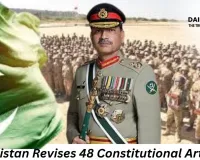Why Trump Is Boycotting the First African G20 Summit in Johannesburg
Digital Desk

The 20th G20 Leaders’ Summit opened in Johannesburg on Friday, marking the first time the forum is being hosted on African soil. Prime Minister Narendra Modi arrived in South Africa to attend the two-day meeting, which runs from 22 to 23 November and centers on the theme “Solidarity, Equality, Sustainability.” But the landmark summit faces diplomatic turbulence after US President Donald Trump announced a full boycott, citing unsubstantiated claims about the treatment of white farmers in South Africa.
South Africa’s presidency comes at a pivotal moment for the Global South, extending a four-year streak of developing nations leading the G20 after Indonesia, India, and Brazil. This year’s agenda places Africa at the forefront, aiming to amplify the continent’s voice on climate impacts, food security, debt reform, and digital expansion. The meeting also carries symbolic weight following the African Union’s admission as a permanent member in 2023a move informally shifting the platform from G20 to G21.
Trump’s withdrawal has cast a shadow over the historic gathering. The US exit is expected to weaken discussions on economic and climate challenges facing developing nations. Trump has argued that South Africa’s government discriminates against Afrikaners claims dismissed by South African leaders and widely discredited by international observers. Opposition politicians, including Democratic Alliance chief John Steenhuisen, have rejected the allegation of “white genocide” as baseless.
The boycott comes months after a tense exchange between Trump and South African President Cyril Ramaphosa during a May meeting at the White House, where Trump repeated claims of widespread killings of white farmers. South African officials denied the accusations, and analysts warn that the US pullout could undermine Africa’s diplomatic momentum at a moment of heightened global attention.
As leaders convene in Johannesburg, South Africa hopes the summit will spotlight African priorities and reposition the continent as an emerging driver of global economic and political influence despite the absence of the American president.



6.jpg)


.jpg)




